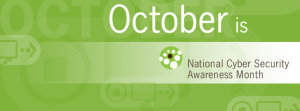 Why should black people worry about data breaches? Because the loss of data to cyber criminals is an exploding problem and awareness is the only way to protect yourself.
Why should black people worry about data breaches? Because the loss of data to cyber criminals is an exploding problem and awareness is the only way to protect yourself.
Data is everywhere. Wherever you have used your credit or debit card is a source of data. This is where information about you, your bank, credit records, buying habits and what cards you hold is stored and all with your name on it. If this information gets out “in the wild” people are now in your business and you know how black people feel about that and our money.
Lets look closer at where your information can be found. Here is a list of businesses that may hold information about you and your money. Add to this list any place you have used your credit or debit card.
- Hotels and resorts
- Restaurants
- Ticket sellers
- Entertainment companies
- Sports teams
- Fitness clubs
- Salons and spas
- Insurance companies
- Mortgage companies
- Utilities
- Mobile phone providers
- Internet providers
- Money managers
- Banks and credit unions
- Credit card issuers
- Hospitals
- Pharmacies
- Doctors and Dentist Offices
- Auto repair shops
- Hair and beauty salons
- Daycare providers
- Retail stores
- Grocery stores
- Gas stations
How serious are data breaches? According to USA Today 43% of businesses have suffered data breaches in the past year. Lets be real about that statistic; many of the large businesses will report a data breach especially when the breach involves millions of credit or debit cards. But smaller business may not report a data breach if they even realize they have had one. That’s why you should be concerned.
Not only are data breaches more frequent but they are increasing in size. The latest big data breaches at the big retailers have lost more than 300 million records. You are probably one of millions of black people who have shopped at Target, Kmart and Home Depot. Your data has been stolen.
If you want to see how serious this data problem has become here are a few frightening numbers from KrebsOnSecurity.com.
You would think with the ever increasing size and frequency of breaches businesses would be ready to act. But less than 30% of companies have a data breach response plan or team in place. That number is down from 39% of businesses that didn’t have them in the previous year. So the simple fact is that black people need to be concerned. We have to be knowledgeable and ready to act in the event of a data breach to protect our information.
But data breaches do not just strike retail businesses. Hospitals are big targets for hackers. According to Health IT & CIO Review since March there have been at least ten hospital data breaches. Los Angeles County Medical Facilities alone lost nearly 170,000 patient medical records.
Director of Threat Intelligence at Phish Labs Don Jackson monitored underground hacking exchanges and found that cyber criminals can make 10 times as much money hacking hospital records than stealing your credit card data. Hackers steal names, birth dates, and insurance policy numbers then use the data to create fake IDs to buy things like home medical equipment which can later be re-sold. The data is also used to file phony insurance claims.
Now the question is what happens to all that stolen data. The new gold mine of the criminal world is data. AACR Rule #5, The currency and commodity of the digital age is called information. According to the RAND Corporation National Security Research Division the stolen data black market has become more profitable than the drug trade. You read that correctly.
What black people should understand is that stolen data is far more than credit card numbers and personal information. Hackers can make money with pictures from your Facebook page and other social media outlets. Hackers see sites like LinkedIn and eHarmony as a treasure trove of passwords that can be used to update their “rainbow tables.” Rainbow Tables are huge databases hackers use to hack harder-to-crack encrypted passwords. Would you believe that hacked Twitter accounts are considered more profitable than stolen credit cards?
The bottom line is that black people are just as vulnerable as other Americans to hacks and data breaches. The difference is that collectively we may not be as savvy to what and how this information is used to steal from us or how to protect ourselves. Its strange because black people use mobile and online banking more than other groups. We need to step up our game.
